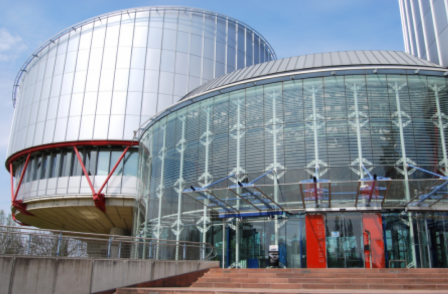
The Government's plans to introduce a UK Bill of Rights has received a mixed reception. But if the proposed legislation included the guaranteed freedom of the press, I'd be all for it.
The former culture secretary, Sajid Javid floated the idea at the Society of Editors conference last year.
Just Imagine: the UK falling into line with the USA, whose own Bill of Rights affirms the constitutional position that no law can be introduced that infringes on press freedom.
The proposed Bill of Rights would replace the European Convention for Human Rights, which has done immeasurable harm to the rights of journalists and publishers since it was introduced in October 2000.
The ECHR’s privacy clauses – incorporated into the PCC Code, and then the IPSO code – have severely curtailed the media’s right to report.
They mean that we can no longer freely:
-
Report detailed information, or photos, of people’s injuries after accidents, disasters, incidents, illnesses etc.
-
Use photos of people receiving medical treatment at the scene of accidents, disasters, incidents etc.
-
Take, or use photographs of under-16s in almost any circumstance, even in public places, without consent.
-
Interview, or attempt to interview, under-16s, without consent.
-
Report ‘kiss and tell’ stories.
-
Publish photos of people at work, without their consent.
-
Publish photos of people in places like restaurants, without their consent.
-
Use photos from people’s public social media pages.
-
Take photos of people in their homes, gardens etc. from the street.
-
Quote from people’s letters, emails or text messages.
-
Give details of people’s illnesses, physical, mental or emotional conditions etc.
-
Publish financial information, including financial transactions, records, pay and bonuses.
- Re-use archived images in different contexts for follow-up features etc.
We can only publish these items if we establish public interest (or exceptional public interest with u-16s) in advance.
Most older journalists will recall that before the ECHR was introduced, the media was free to publish most of the above, without restriction and without consent … we didn’t even think twice.
And of course, the PCC/IPSO definition of public interest is far stricter than anything used in English common law prior to the ECHR. This substantial shift in press freedom 'emerged' without a moment's debate in Parliament.
The ECHR’s privacy clauses have also created an ‘I know my rights’ culture among public servants, and the general public.
As a result, press photographers are often told: ‘You can’t take my photo’ when covering everything from village fetes, school sports days, vox pops and demonstrations.
The ECHR reared its head again last week when it restricted the rights of online publishers to use unmoderated reader comments on message boards.
A Bill of Rights that included a guaranteed free press would be a chance for the media to redress this type of censorship that the ECHR has introduced. Press freedom used to be a common law imperative in this country. The ECHR has removed that.
I believe journalists have a duty to grasp any opportunity to defend and promote it – no matter which party is proposing it.
Email pged@pressgazette.co.uk to point out mistakes, provide story tips or send in a letter for publication on our "Letters Page" blog
